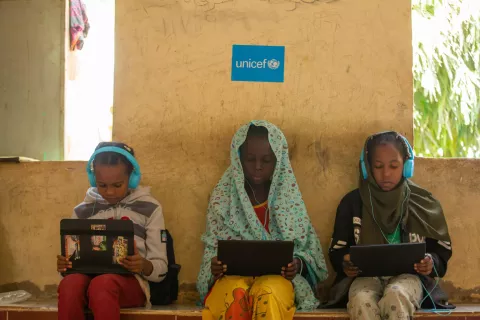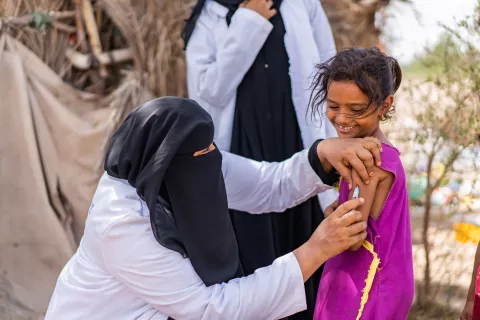Stolen childhood: Gang violence in El Salvador
A family faces threats and violence in one of El Salvador's most dangerous neighbourhoods

- Available in:
- English
- Español
SAN SALVADOR, El Salvador, 24 November 2017 – Tears roll down her face. Through the sobbing, she describes how her family has suffered at the hands of one of the world’s deadliest street gangs. She pauses for a minute, catches her breath and wipes her tears.
Lorena* is a mother of four. She lives with her husband Julio and children in a densely packed slum around San Salvador, one of the most violent places in El Salvador.
The family used to run a small store out of their home. In January 2013, gang members showed up at their house and demanded payment.
The family agreed to pay out of fear. When they didn’t have cash, they would hand over some of their inventory. They were threatened with death if they reported the acts to the police.
The gang members kept coming for months, until one day Julio told them that they could no longer afford to pay. A few days later, 20 armed gang members arrived, banging on the door and demanding the money.
They threatened and assaulted every member of the family, including the children. The family was given 72 hours to come up with US$10,000 if they wanted to stay alive.
Knowing there was no way to come up with such a sum of money, the family packed what they could and fled. They couldn’t afford to move far though, and had to settle for relocating to another part of the city controlled by a rival gang.
Since the family fled, the retaliation has been brutal: one close relative was hacked to pieces and another was shot to death. The family continue to receive threats and they live in constant terror of what could happen next.

When children can’t be children
The two older children Bryan, 14, and Jaime, 16, have been out of school for four years now and they're not alone: Over 15,000 students dropped out of school in 2015 due to violence, reports the Ministry of Education.
After their relatives were murdered, playing outside is also not an option. Both of them are convinced that they will also die.
“Why did they do this? We didn’t do anything wrong,” says Bryan, as Jaime puts his head on the table and sobs. There is no possible response. Why would someone take away childhood from innocent children who deserve to play, go to school, and have a normal life?
They dream of “a nice place that’s safe, meeting good people, being able to work to help out their family, having an education.” But there is no hope in their eyes that reflect the years of living in fear and hiding.

When parents can’t protect their children
Julio thinks about life before all of this happened. He recalls living humbly in the fields, never lacking food and having peace. But now, it’s distress, fear and great poverty.
“I can’t take them out, because we feel like they will kill us. We can’t even sleep at night. My wife and I take turns keeping guard,” he says.
They feel their lives are hanging by a thread. Words are left with no meaning when there is no way to guarantee protection and the possibility of a safe future. Sadly, this uncertainty is a reality faced by thousands like them in the country and in the region.
The family filed a case with the Institute of Human Rights at the University of Central America (IDHUCA), which is working alongside United Nations agencies, such as UNICEF and UNHCR, to assist them with their case. If they meet the requirements, the family will be granted asylum and relocated to a safe location.
UNICEF El Salvador has partnered with the Institute of Human Rights at the University of Central America (IDHUCA) to assist with cases of displacement and forced migration, and to help place vulnerable families in safe houses. More resources and support are needed to strengthen protection initiatives.
* Names have been changed to protect the identity of the family.




